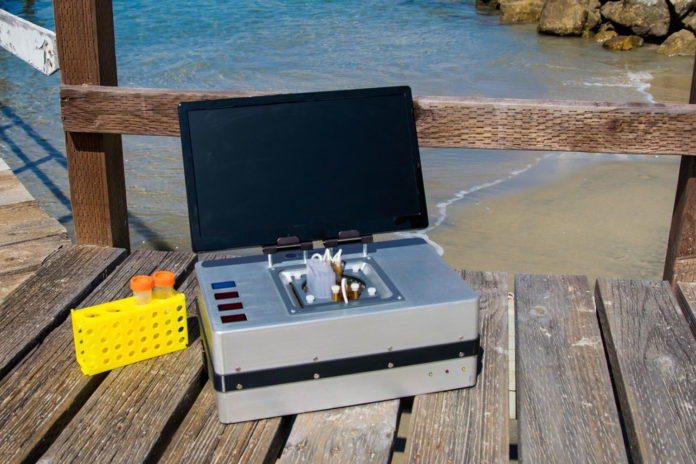The existence of life outside the Earth has not yet been proven, but across our solar system, there are some tantalizing possibilities for primitive life to find a haven. However, finding traces of past or current lifeforms on other worlds is challenging.
Now, researchers from the American Chemical Society (ACS) in the United States have developed a fully automated microchip electrophoresis analyzer that, when incorporated into a planetary rover, could someday detect organic biosignatures in extraterrestrial soil. The team claims that their device stands out for its portable nature, for its battery power and because it has two chips that allow it to quickly and efficiently classify the material to be analyzed.
One of the most critical pieces of evidence of life outside the Earth is the occurrence of organic molecules. Some previous missions used a combination of gas chromatography and mass spectrometry (CG-MS) to separate and detect compounds. But the problem is that these processes have limitations for analyzing substances such as organic acids – particularly if water, minerals, or salts are also present in the sample.
So, researcher Dr. Peter Willis and his colleagues developed a device that combines microchip electrophoresis (ME)-based separations and laser-induced fluorescence (LIF) detection. The portable, battery-powered device integrates two ME microchips – one for processing and labeling a liquid sample, and the other for separating compounds within the sample.
In addition, the instrument also has a LIF detection system that checks if any of those compounds are ones associated with living organisms. It could perform the analysis, identification, labeling, and separation of components completely automatically.
Researchers have already tested the prototype in a simulated Mars mission in a Chilean desert. During the tests, the analyzer was used with a subcritical water extractor on a remotely deployed rover system. The rover drilled into the soil to collect samples, which were mixed with water and heated to extract compounds for analysis. In the end, the device was able to detect parts per billion levels of amino acids in soil from three of four drilling locations.
Further studies are needed to improve the instrument for space flights and missions on other planets, but the researchers believe that this study may serve as an impetus for the development of ME-LIF instruments on future missions to look for signs of life beyond Earth.
Journal Reference:
- Fully automated microchip electrophoresis analyzer for potential life-detection missions. DOI: 10.1021/acs.analchem.0c01628
